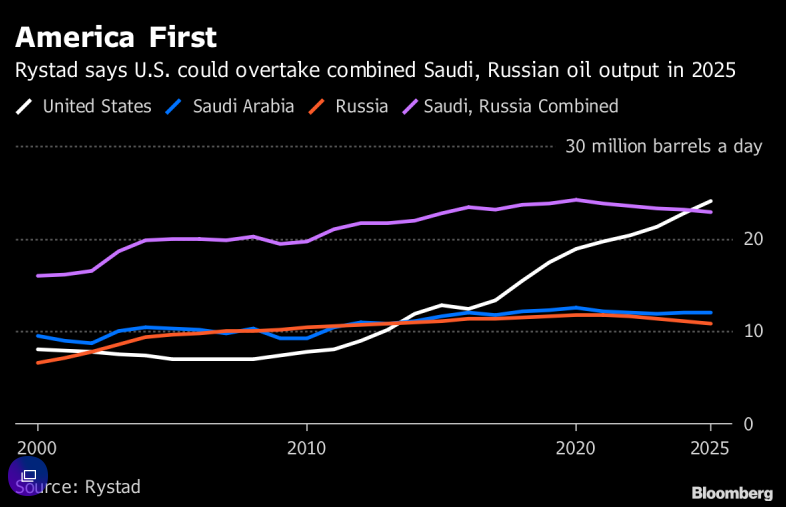(Bloomberg) — U.S. shale-oil companies are on track to add production equivalent to Saudi Arabia’s output by 2030, without needing the external financing the industry’s boom has relied on so far, according Rystad Energy AS.
“They are going to be very profitable, they are going to be able to return surprisingly good cash amounts to investors and still grow one Saudi Arabia,” said Per Magnus Nysveen, senior partner at the Oslo-based consultant.
Although the shale revolution has helped American oil production more than double since the start of the decade, its dependence on debt and equity to grow production volumes while offering limited returns to investors has raised doubts about its sustainability.
That trend seems to be reaching a tipping point, with drillers entering a new era of discipline in which they’ve cut capital spending and launched share buybacks.
The frugality will continue during the shale industry’s coming expansion, which will see it add about 1 million barrels a day of production a year through to the end of the next decade, effectively creating a new Saudi Arabia, according to Rystad.
“The financing party is over,” he said. But drillers “have enough cash from the producing wells to finance quite a lot of capex, so they don’t need this financing any more.”
Companies have been cash-flow neutral this year, and will be “very positive” in 2020, Nysveen said in an interview in London. Drillers learned to squeeze costs during the market downturn in the middle of this decade, slashing the oil-price needed to produce a barrel by half to about $40, Rystad estimates.
Despite the flood of American crude, oil markets are unlikely to become oversupplied as demand is healthy and output is declining at ageing fields around the world, said Nysveen. In fact, markets will become “dangerously tight” as the growth in shale output levels off toward the end of the next decade, Nysveen predicts.
To contact the reporter on this story: Grant Smith in London at gsmith52@bloomberg.net
To contact the editors responsible for this story: James Herron at jherron9@bloomberg.net, Helen Robertson, Rakteem Katakey



